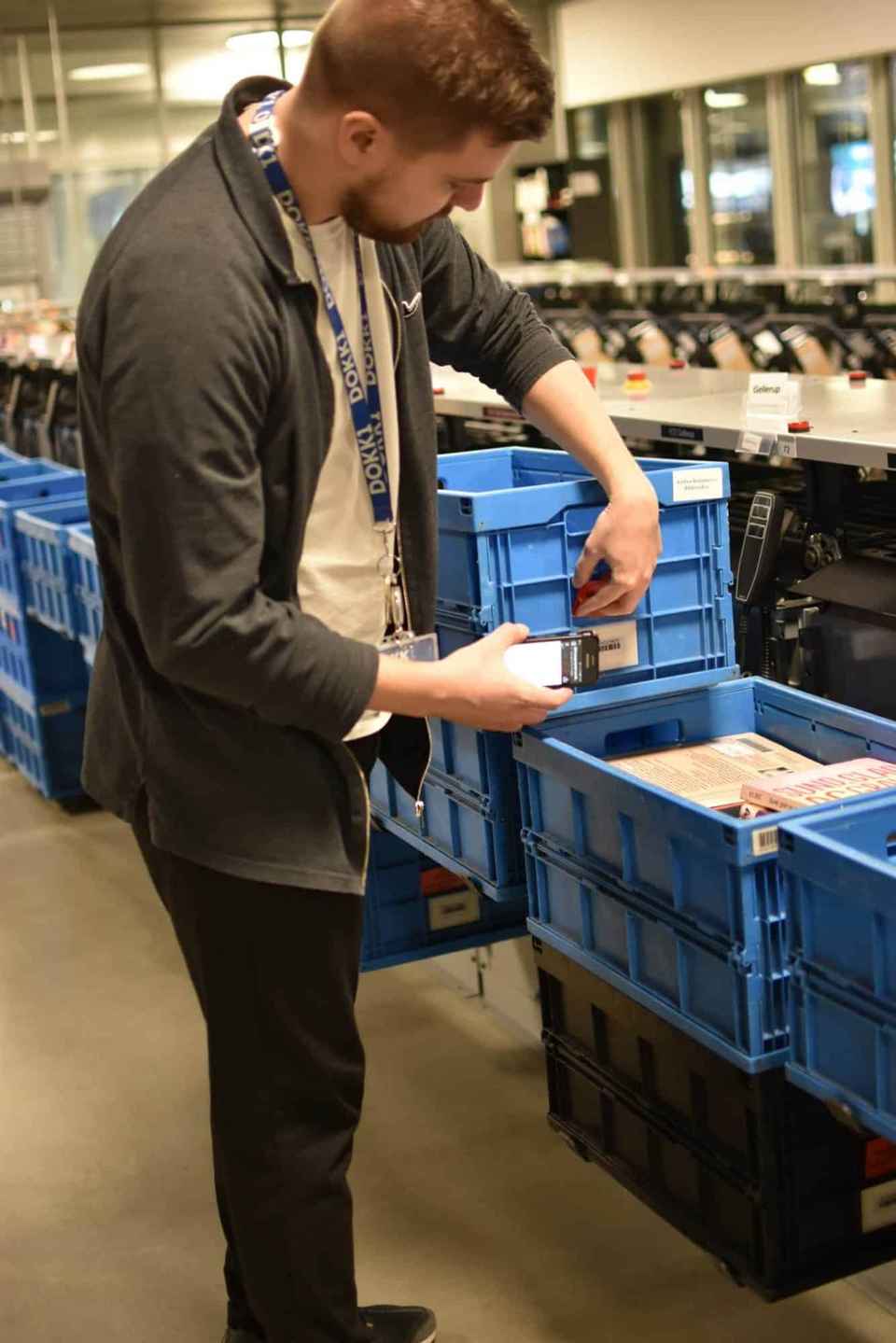Case Story: Stadtbibliothek Aachen - Aachen City Library
Pushing Heavy Book Trollies Is Now Finally in the Past
"Every agreement made was reliably respected, as was the timeline. The cooperation with Lyngsoe was really good. Language barriers did not cause any issues.
Lisa Kmoch, responsible project manager
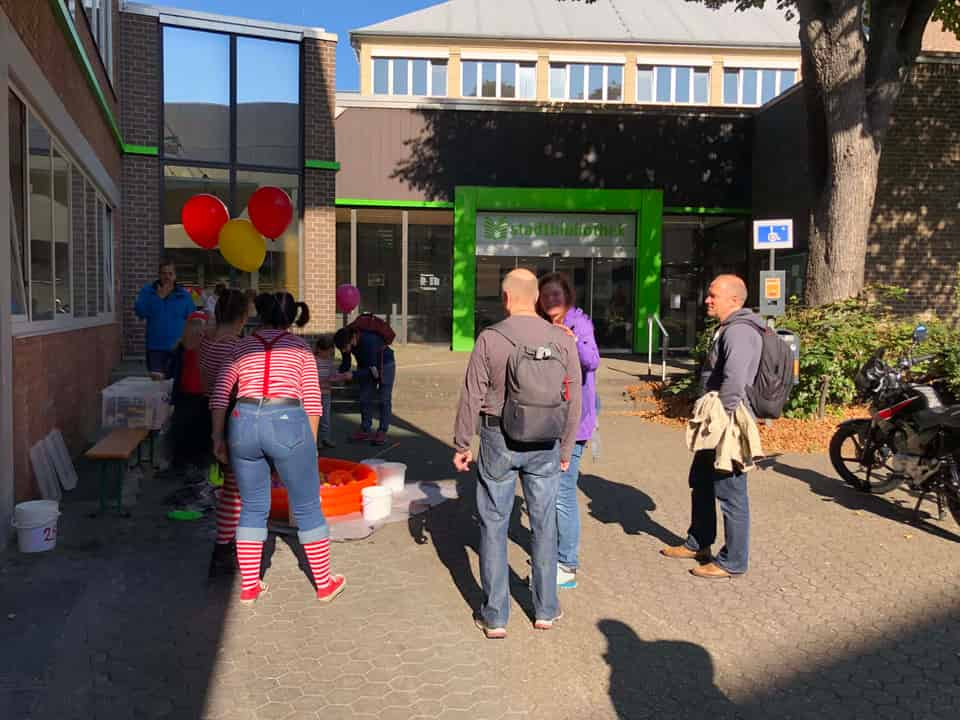
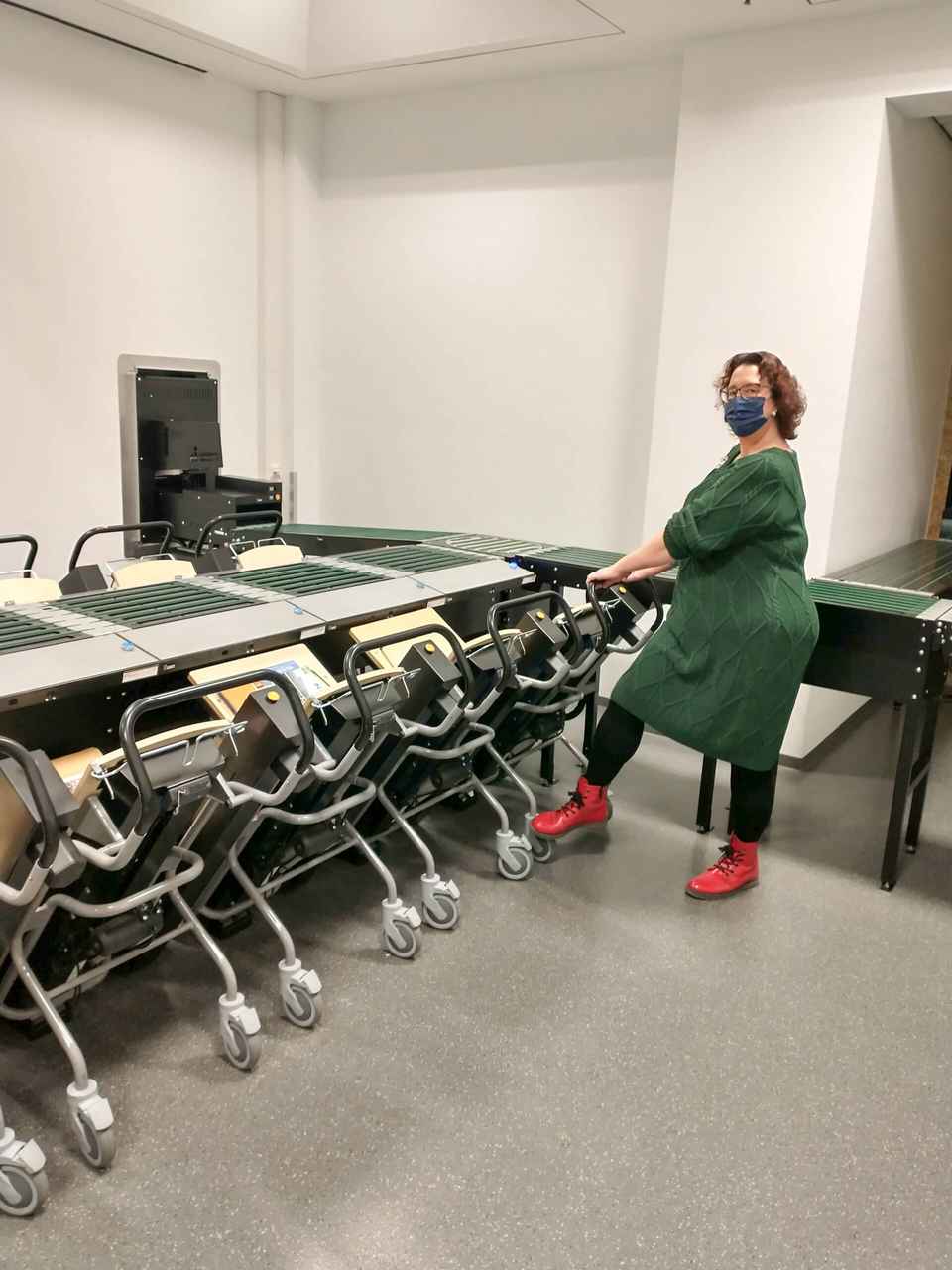
Self-Service with RFID – The Latest Technology as a Driving Force for Further Development at the Aachen City Library
When self-service was introduced, the full-time libraries were equipped with RFID technology: These are the central library with a larger sorting system as well as an external return station, a book bus and two branches. Libero Library Management System, Libero Systems Pty.Ltd, Australia, is in use at these locations.
Independently from this, there are four other voluntary branches in the urban area, some of which work with an analogue approach and have therefore not switched to RFID.
The open-access section, i.e. the media inventory, which was to be converted in the first wave, comprises around 175,000 materials. The team of over 60 people used the time during the first lockdown in spring 2020 productively to convert the materials, as the upstream tender for tags and RFID identification cards started back in 2019.
Initial Situation
Preliminary plans for the introduction of a self-service system have been in place since 2008, but it was only years later that the fundamental modernization* of the Aachen City Library could be implemented (*The introduction of the new technology went hand-in-hand with a structural redesign of the entrance area and refurbishment of the ground floor). The State of North Rhine-Westphalia provided financial support for the introduction of the self-service system and the associated structural changes.
While other libraries elsewhere had already gained experience with self-service systems or even had to process the “end-of-life” of their equipment, the Aachen City Library was able to build on these experiences. The technology had evolved over time and the market position of the supplier companies had been established. Despite the relatively late switch from over-the-counter booking to RFID, the City Library in Aachen benefited from the timing. The facility was looking for tailored solutions that make material booking processes as quick and easy as possible. RFID access control had to be able to accommodate future developments such as more flexible opening hours (Open Library).
Ergonomic considerations had been identified as a key requirement during the design phase. Many application libraries use media bins as the sorting destination for sorting media. Here, the staff has to put the returned media back in the correct place on the trolleys. Bücherhallen Hamburg already had a sorting system with stackable book trolleys in use, where the books are placed gently and, in a row, which enables the staff to sort them back on the shelf in a back-friendly way. After reading a wide variety of testimonials, contact with other libraries, and assessments from the library community, the decision was made to introduce a similar approach in Aachen.
The goal was to ensure that transport and the process of checking the media back in was quick and stable with a pre-sorting stage. The planning team was supported in all these considerations by the city project steering committee. This is a committee made up of representatives from a wide range of offices, occupational health, and safety as well as other bodies subject to co-determination. These requirements were ultimately formulated in the Europe-wide tender. The tender was for several RFID pads, a resorting system with 17 sorting destinations, 13 connected stacking books and exchange trolleys, two return terminals, an external return station, four height-adjustable check-out stations, and a security gate with visitor counting. Lyngsoe Systems was awarded the contract.
Step-by-step procedure: Conversion of media collection, installation of RFID components, step-by-step commissioning. The necessary preparatory work was planned together with the municipal IT service provider, the library software company, and municipal representatives such as building management and an external architectural firm. The interaction required openness, trust, and flexibility from all sides.
Improving Functionality
Impressed customers
The components were delivered and quickly installed in October 2020. Two return stations (wheelchair accessible and at in different heights) and an internal external return station (24/7 video monitoring) are connected to the sorting system. To create space for the sorting system and Ergo Carts, the city library re-purposed a space previously used for events.According to Lyngsoe, the Aachen sorting system with the Ergo Carts is the largest installation in a public library in Germany after the Hamburg Bücherhallen (as of December 2020). A further six media boxes were subsequently integrated for DVDs, CDs and magazines.
The city library worked in a hybrid transition phase for a time: After completion of the sorting system, conventionally loaned media could already be returned via the return terminals. Manual distribution to book trolleys was eliminated and replaced by automatic assignment to the Ergo Carts. The stacked books are easy to uncouple on the trolley, move smoothly and can be quickly moved to the right media location. This enables returned media to be easily put back in the correct place.
The media are now available to patrons again faster. The safety concept is impressive. Care and maintenance are described clearly in the manuals and easy to implement. From the very beginning, the employees were enthusiastic about the option of raising the media board automatically to the height of the handle. Pushing heavy book trolleys is now finally a thing of the past.
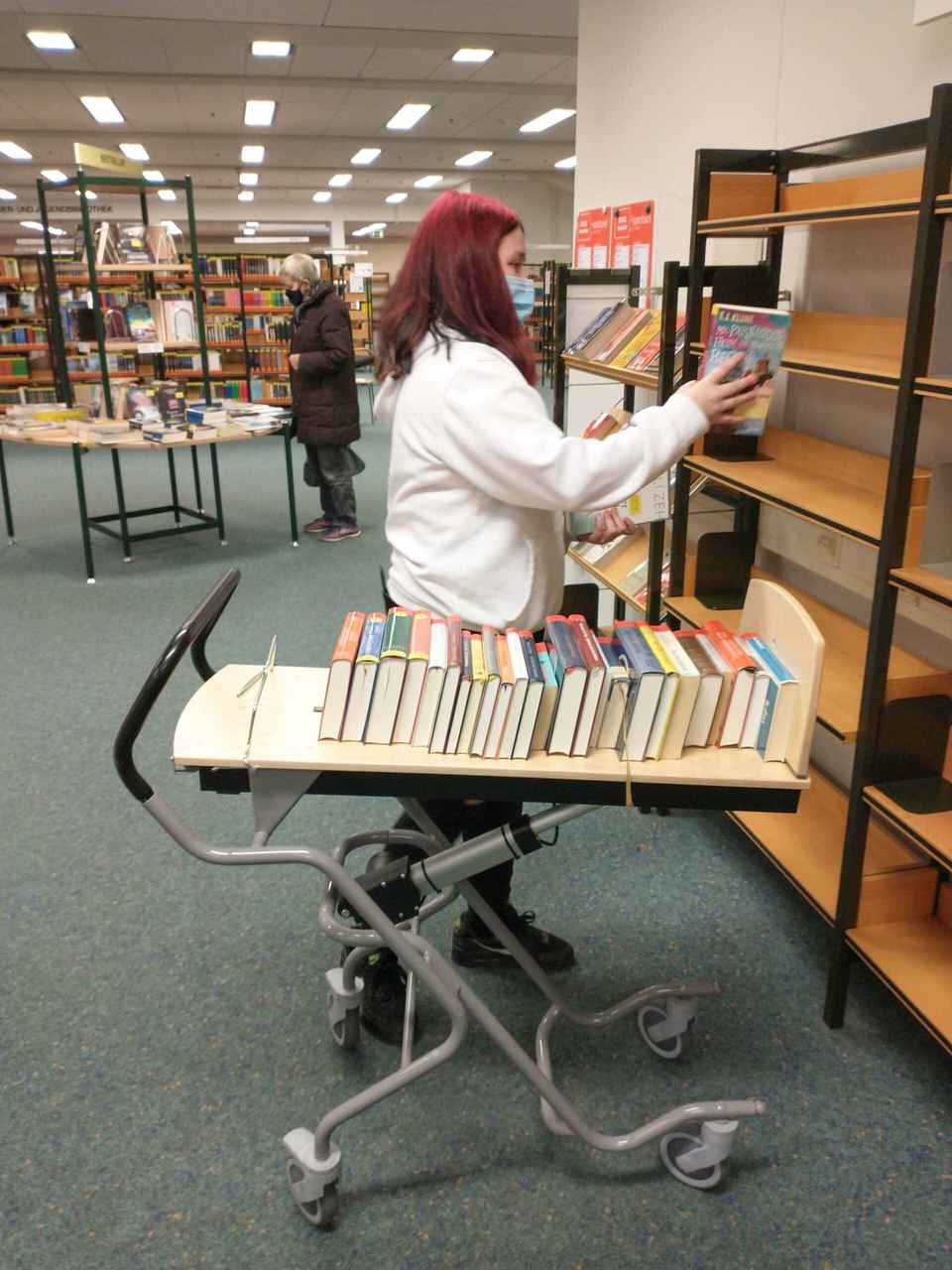
Benefits
Much easier to handle
A colleague who used to work with RFID in another big city library, but without a sorting system or stacked book trolleys, says: “It’s much easier to handle (…) Until now, I was only familiar with the so-called ‘intelligent shelf’ in the branch, where patrons sort out their media roughly by themselves. When it comes to returning the media to its proper place, the staff push them through the library on trolleys. That was laborious and difficult.” (…) “I particularly like the design of the new external return station. It is visually appealing and self-explanatory and fits well into the lobby.” (…) “The Aachen solution with RFID is truly optimal in comparison”.
External return station has been well received from the start and has being used by increasing numbers of people. We have received a lot of positive feedback on this.
The self-check out terminals can be placed flexibly and stand on height-adjustable tables. Operation is intuitive and very easy, so that patrons quickly accepted the procedure after a brief familiarisation phase. In the central library, the return and check out of media are separated. In the branches, the self-service kiosks do it all in one.
The pandemic posed a significant challenge, however. It was sometimes only possible for training to take place virtually, but with care, a pragmatic approach and patience, it was possible to complete the complex project on schedule.
Following extensive reorganization and with new logistics, the Aachen City Library is well positioned for future developments.
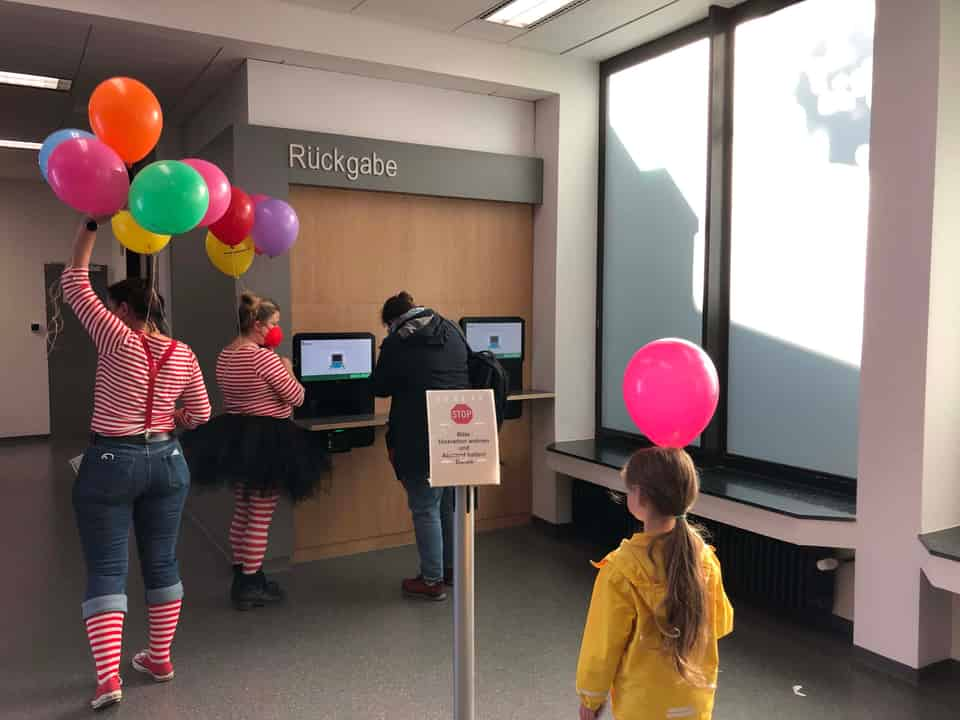
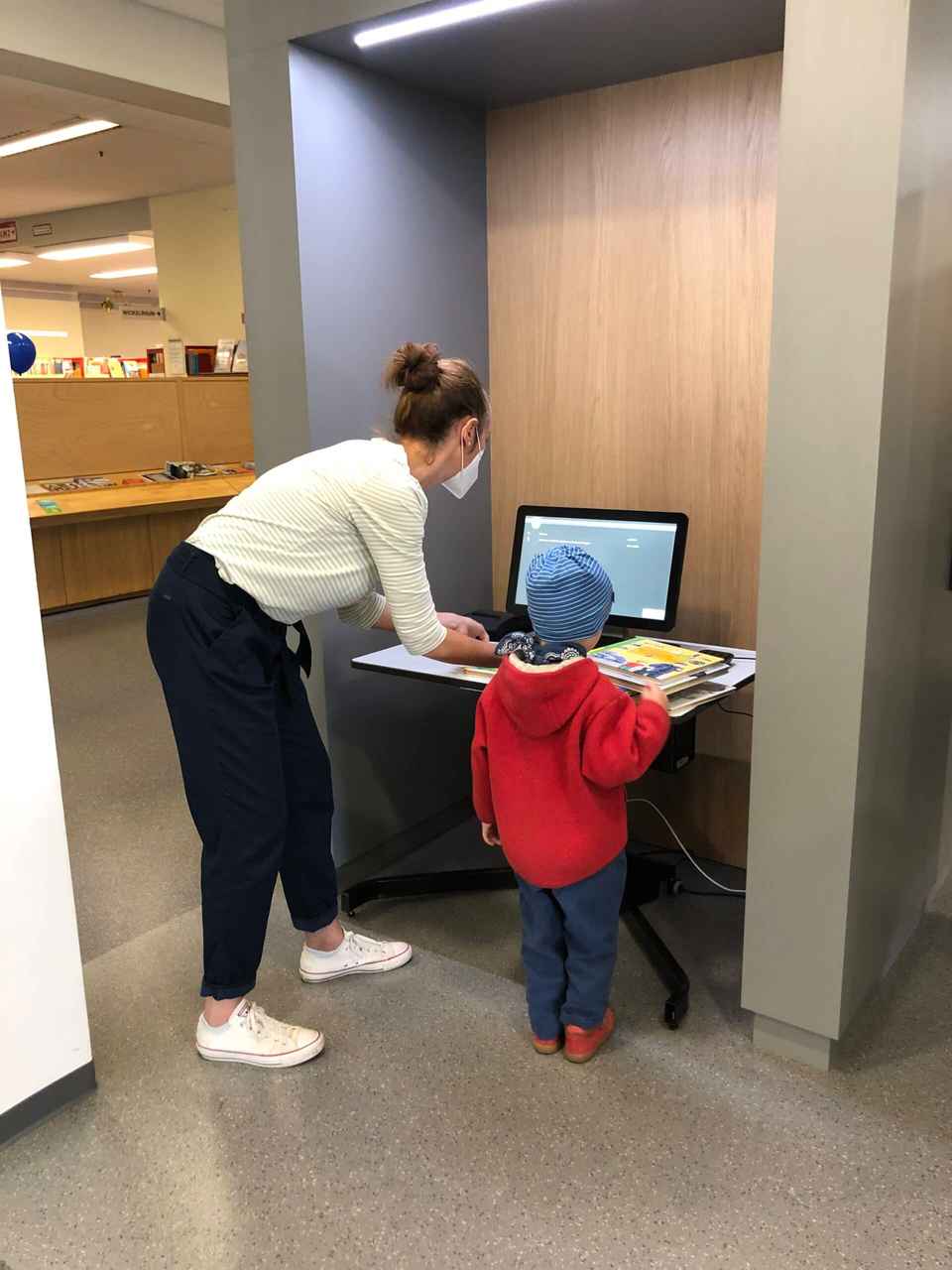
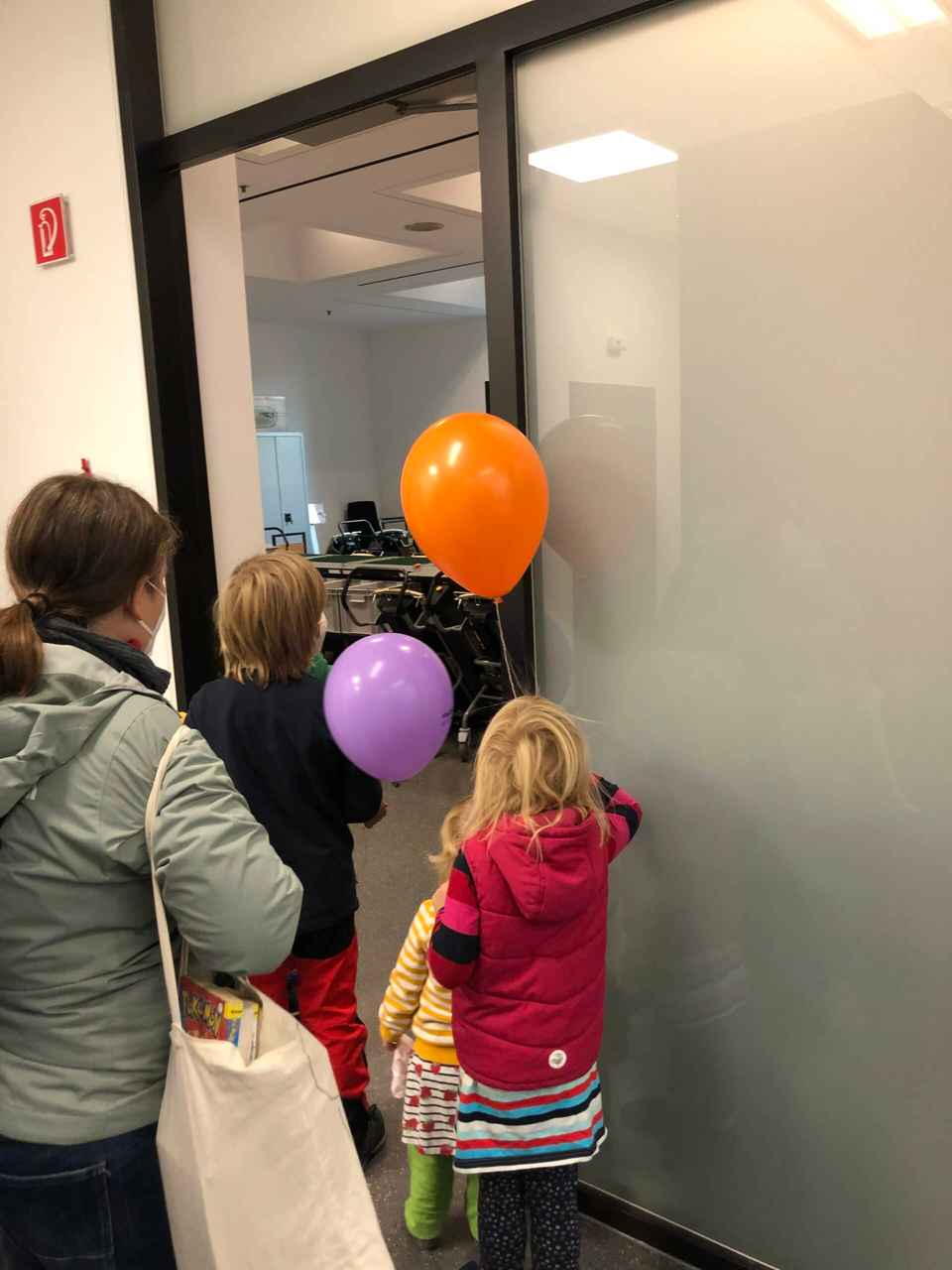
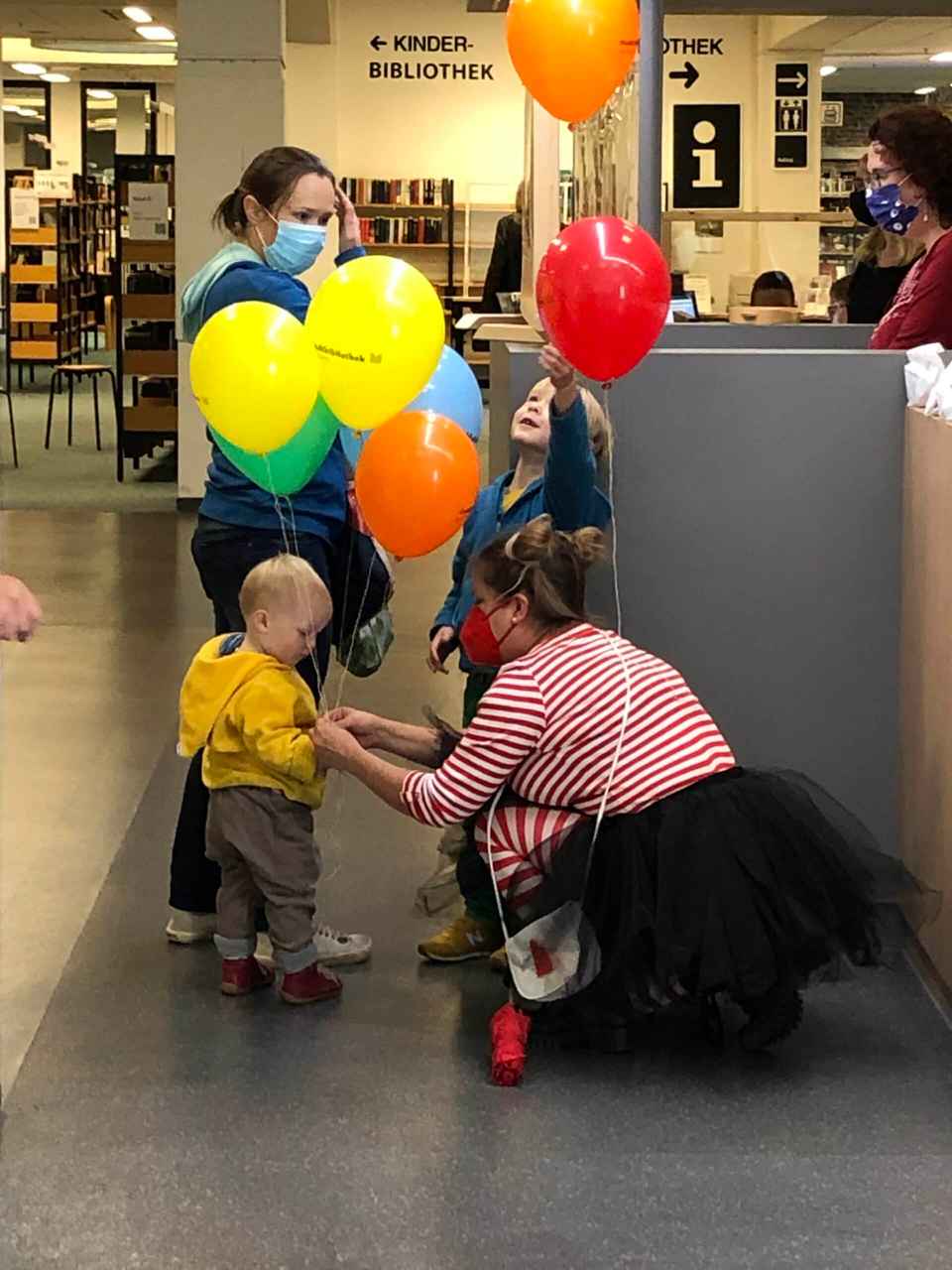
"Customers are impressed by the possibilities. Discreet loaning and 24/7 return options – we receive many positive reactions. – The Aachen City Library has made the jump into the 21st century."
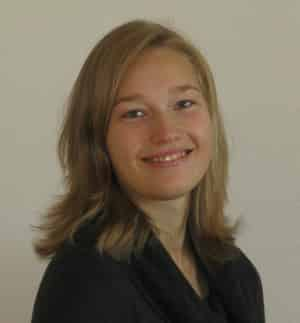
Lisa Kmoch
Responsible project manager
Explore our Products and Solutions
Automated Material Handling
Simplify your library operations with Automated Material Handling. Enjoy faster returns, seamless sorting, and improved overall efficiency.
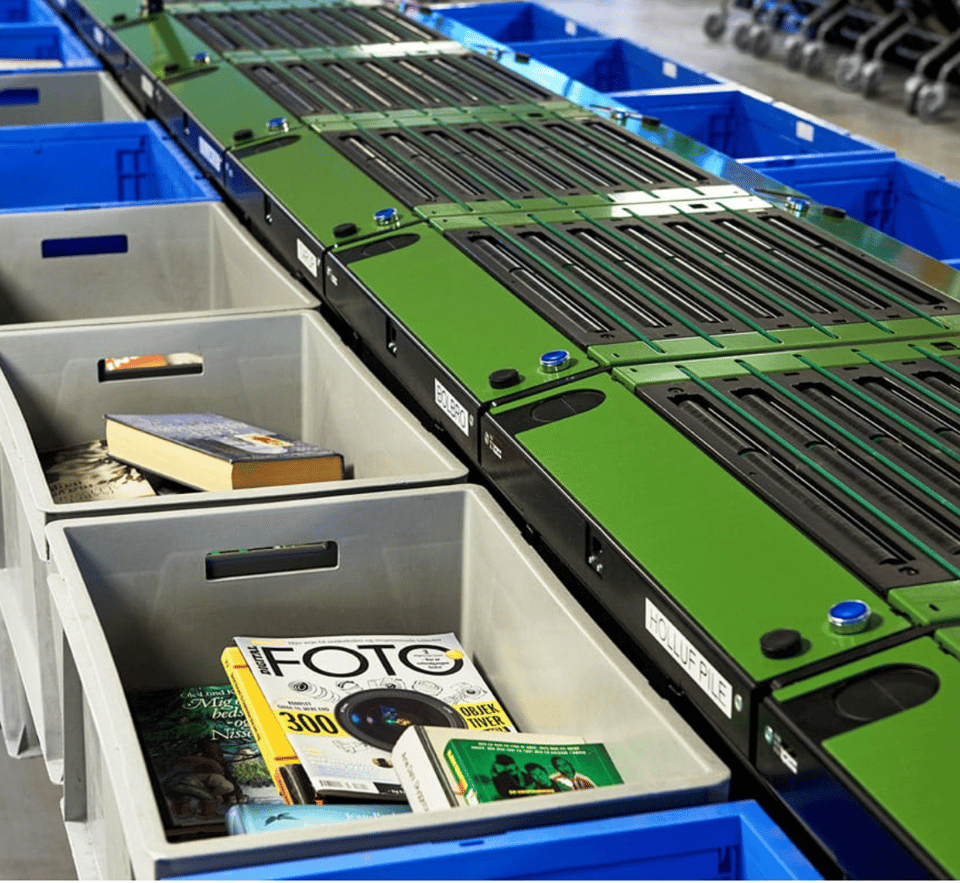
Self Service Equipment
Empower your patrons with our Self-Service Equipment. From easy check-outs to efficient returns, make every library visit a seamless experience.
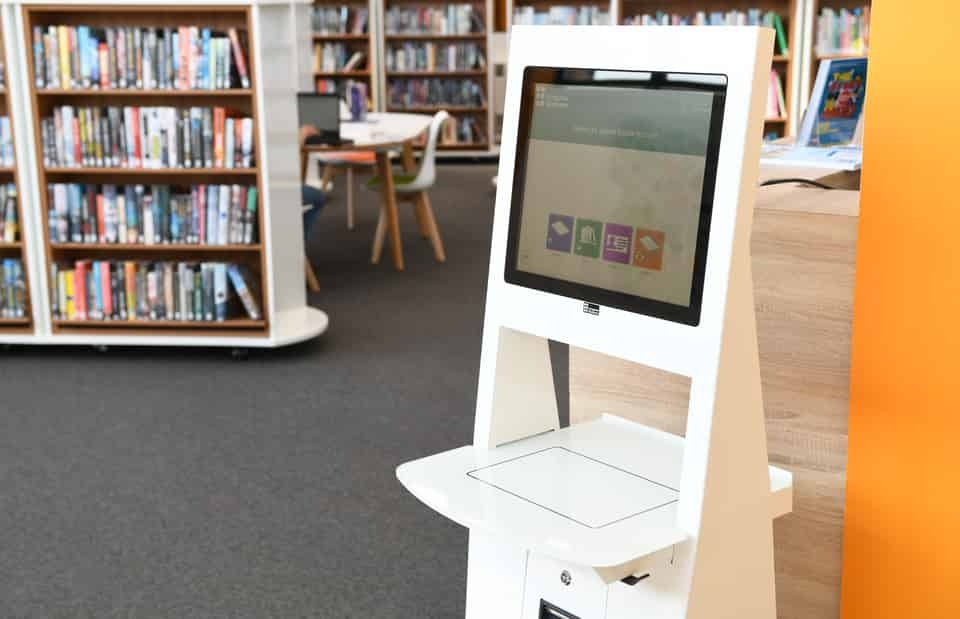
Intelligent Material Management System
Take control of your collection with IMMS. From data-driven insights to ergonomic handling, transform the way your library manages its resources.
